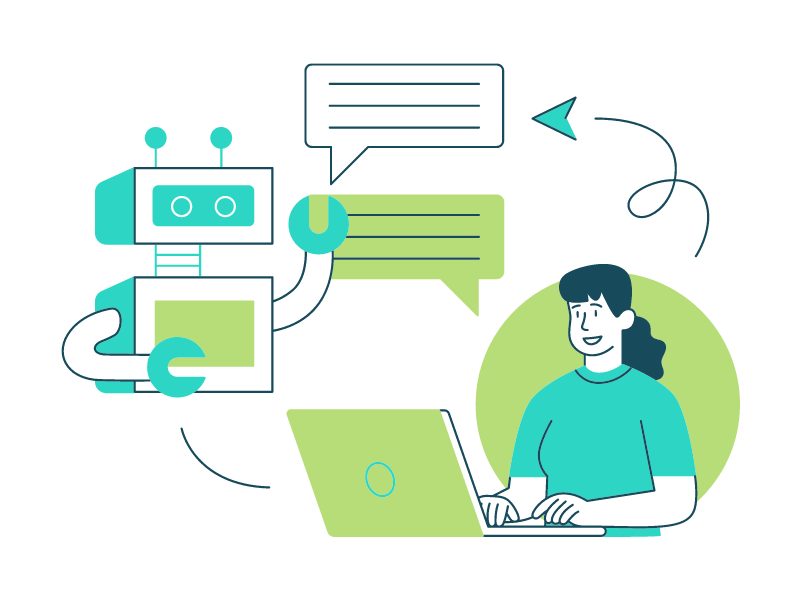AI can benefit nonprofits—here’s how to get started
AI is one of the most buzzed-about topics in the world today, and the technology is seeping into every sector of the business world. Nonprofits, in particular, can benefit from the tool’s ability to automate recurring tasks, analyze and synthesize impact data, and even help with grant writing and donor outreach.
“AI is a great way to accelerate your work, to improve the reach of your programs, to help you figure out how to serve more people over time,” says Ellie Bertani, president and CEO of the GitLab Foundation, an independent global private foundation focused on economic mobility. “[The technology] is really helpful for nonprofits to improve their operations…so that more dollars go to the services that actually help people rather than the backend administration of a nonprofit itself.”
GitLab Foundation recently announced the second round of investments through its AI for Economic Opportunity Fund, which supports AI-focused projects that promote economic mobility. Because the Foundation is committed to delivering a high return on their investments, the projects they support must produce concrete impact data.
This second cohort includes 14 nonprofits, such as Recidiviz, which partners with state criminal justice agencies to reduce workloads and promote criminal justice reform through the use of AI tools. The first cohort, announced in late 2023, supported 13 nonprofits, including CareerVillage, which is building a research-backed AI career coach designed to close skill gaps and improve outcomes for job seekers. Over the two rounds, GitLab Foundation has granted $5.5 million. The organization closely monitors its impact and shares the data publicly via its predicted impact dashboard.
Carrie Morgridge, co-founder of MFF, is excited to see more nonprofits using AI to measure impact. “When nonprofits can show data-driven proof of the number of people they are reaching, especially those entering the workforce or earning higher wages than before, it builds our confidence to invest—as is the case with Recidiviz and CareerVillage, which are both partners of ours,” she said. “But AI is about more than data measurement. If the goal of your nonprofit is to make the world a better place, then you have to be creative, efficient, and effective. AI can help with that.”
Though AI is relatively unregulated at the moment, legislation is progressing across the country and at the state and federal level. That’s why nonprofits should “get in the game now,” says Angie Cooper, president and COO of Heartland Forward, a nonpartisan nonprofit working to accelerate economic growth in the center of the country. “Nonprofits that engage with AI stand to set themselves apart, especially those that are willing to jump in and wrestle to find the best way to leverage the technology to the greatest effect.”
But incorporating AI into an existing system isn’t as simple as clicking a button or saying, “Hey, Siri.” The technology is still young, and it can be intimidating to use.
To start, Cooper encourages organizations to develop an AI policy, have internal conversations to understand who on your team is well-versed in AI and determine where the technology could potentially add internal value. Bertani also suggests that nonprofits find a technical partner to help get things established, whether that’s a for-profit company or a research university. This approach, Bertani says, is less expensive and more pragmatic than jumping straight to hiring someone in-house. (GitLab Foundation’s AI for Economic Opportunity Fund, for example, is administered in partnership with OpenAI and the Washington-based investment company Ballmer Group.)
Privacy and security also are important up-front considerations. “It’s worth getting a paid version of whichever AI tool you go with,” Cooper says, “so you can ensure the platform is secure and internal and client data are protected.” The GitLab Foundation team notes that users also need some sort of internal fact-checking process to confirm the accuracy of the information AI is churning out—whether it’s tracking your organization’s impact or creating data sets for clients.
GitLab Foundation has seen nonprofits successfully leverage AI to improve career navigation and job matching, and the foundation itself has benefitted from using the technology within its grant-making processes. It’s helped speed up and deepen the team’s research and synthesis of large amounts of data or text. For example, they can input transcript data from dozens of interviews (gathered with permission from their grantees) and end up with an AI-generated summary of key challenges, as well as a list of questions to ask as they prepare to interview future cohorts.
In short, AI can help nonprofits become even more proficient at something that’s already part of the industry’s DNA: doing more with less.



